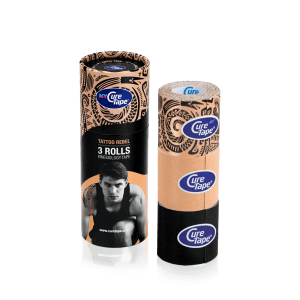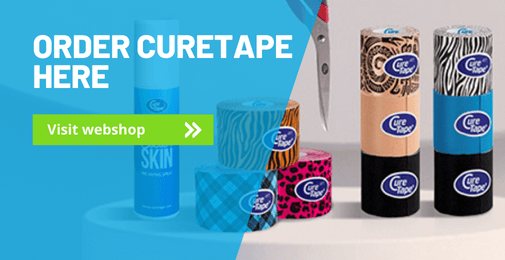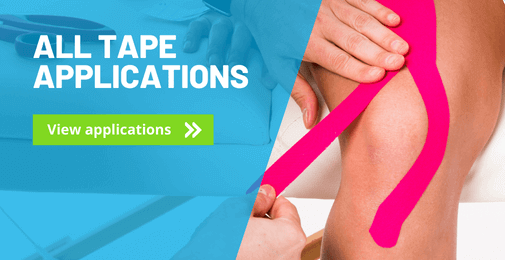Pain in the sole of the foot can have various causes. It is usually caused by overloading, e.g. by walking in highheeled shoes that are too narrow, or by walking on uneven ground. A weakened forefoot arch (typical staggered foot) can also lead to strain and pain in the area of the ball of the forefoot. The tape helps relieve strain on the ball of the foot and reduce associated foot pain.
If you experience persistent pain in the sole of your foot, you should see a doctor to find out the cause. Depending on the cause, it may require a specific treatment, such as a special shoe insert to support the arch of the foot, physical therapy, or medication.
How to tape a painful forefoot
Tips for a good foot taping application:
- Is the cause of the complaint or pain clear?
- Check if there any contraindications for not taping.
- Before you start taping, carefully read the instructions.
- Choose a colour of tape, any colour that fits your mood!
- Round of all the edges to prevent peeling.
- Do not stretch the tape at the beginning and the end.
- Rub the tape well for adhesion. Heat activates the adhesive layer.
- Showering or swimming is possible, pat the tape dry after it gets wet. Do not rub it hard.
- It is easier to remove the tape with body or massage oil.

Christina’s advice when taping your foot
In the self-taping instructions, I have chosen taping applications that are easy to apply yourself. In order to make this treatment safe, I give practical tips, which you should take into account before, during and after a tape treatment. They are based on my years of practical experience. If the complaints persist, always consult a therapist or doctor.
Instructions
Tape
Shape:I-Tape.
Number of strips: 3.
Technique: ligament technique (maximum/full stretch).
Measuring and cutting the tape
Step 1:
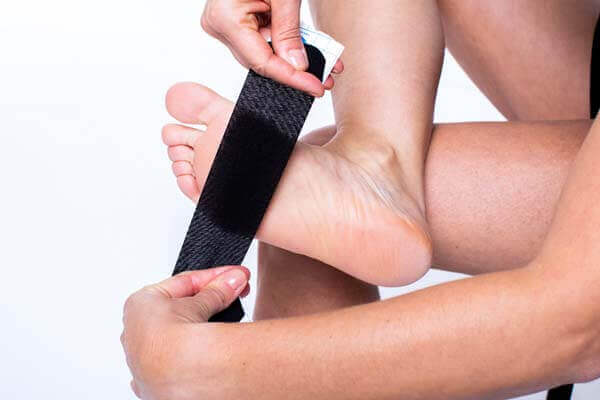
- Sit on a chair and place the foot to be treated on the knee of the other leg.
- Measure the length of the first two tapes from the ball of the big toe to the ball of the little toe.
- Measure the third tape from the bottom of the toes, over the Achilles tendon, up to above the heel.
Applying the tape
Step 1:
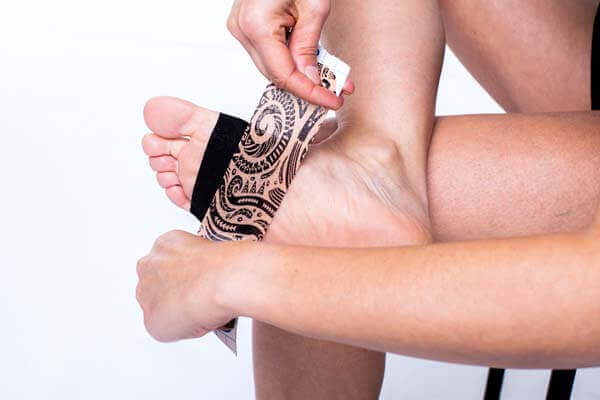
Step 2:
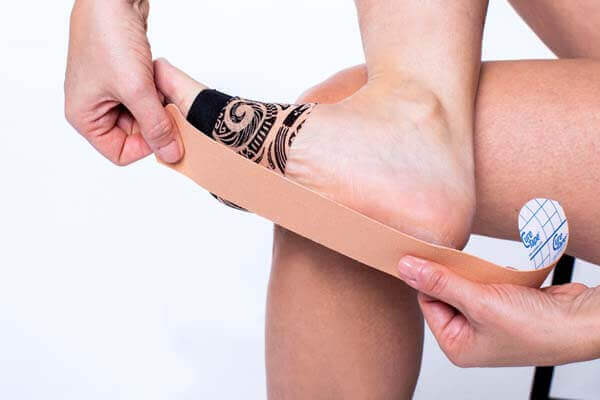
Step 3:
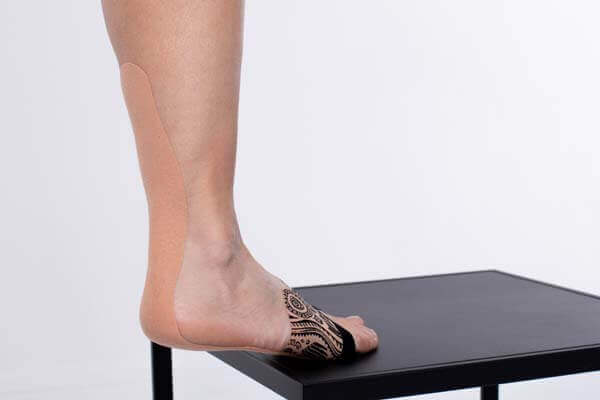
- Tear the release paper of the first tape in half and fold the paper away on both sides.
- Attach the centre piece directly to the lower edge of the toes at maximum stretch. In doing so, you must pull the toes towards you.
- The two anchors end without stretching at the top of the foot.
- The second tape is applied using the same application technique, overlapping by approximately 2 cm.
- Place the base of the third tape without stretching and lengthwise at the lower edge of the toes. Pull the toes towards the body. Now apply the tape with 50% stretch over the entire sole of the foot up to above the Achilles tendon with the anchors without stretch.
- Finally, rub the tapes gently.
Popular products to tape your foot
-
MYCureTape® – 3 Rolls Kinesiology Tape – Value Pack
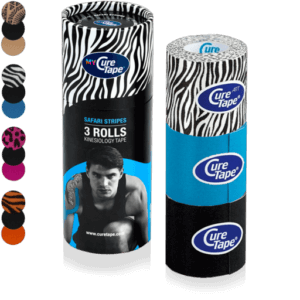 $26.95
In stockSelect options This product has multiple variants. The options may be chosen on the product page
$26.95
In stockSelect options This product has multiple variants. The options may be chosen on the product page -
Book: The Ultimate Kinesiology Taping Guide
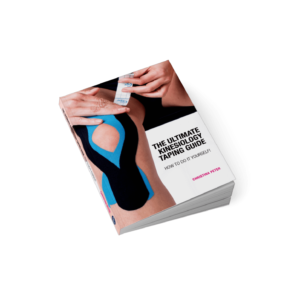 $29.95
In stockAdd to cart
$29.95
In stockAdd to cart -
CureTape® Ultimate Self-Tape Starter Kit
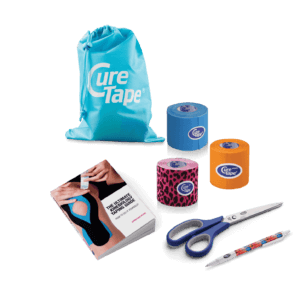 $87.95
In stockAdd to cart
$87.95
In stockAdd to cart
Learn how to tape
- 30 taping instructions for common injuries that taping can help you with
- 176 pages of clear written instructions
- 200 step-by-step instructions accompanied by photo’s, illustrations and scannable video’s through QR codes
What are you waiting for? Order your copy today!
*This book is intended for people who want to tape an injury or complaint themselves. If uncertain about the complaint, consult a physiotherapist.
THYSOL is the manufacturer of the kinesiology tape brand CureTape. As CureTape, we have been training and supplying professionals for almost 25 years. And consumers now know how to find us too! By manufacturing all our tapes in our own factory, we can guarantee the best quality!
Please note that the indicated tape applications and information on our website about the possibilities with kinesiology tape have not yet been scientifically proven. The statements and examples mentioned are based on long-term experiences of patients and trained therapists.
Contraindications not to tape: pregnancy, open wounds, broken bones, unexplained complaints, allergies and skin diseases, use of medication such as blood thinners, thrombosis and fever. Always apply tape in consultation with a specialist.

